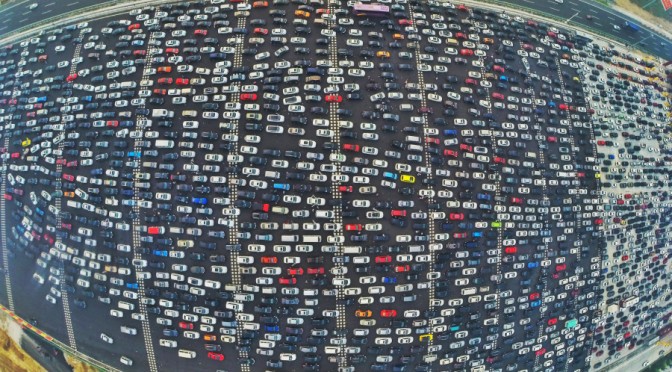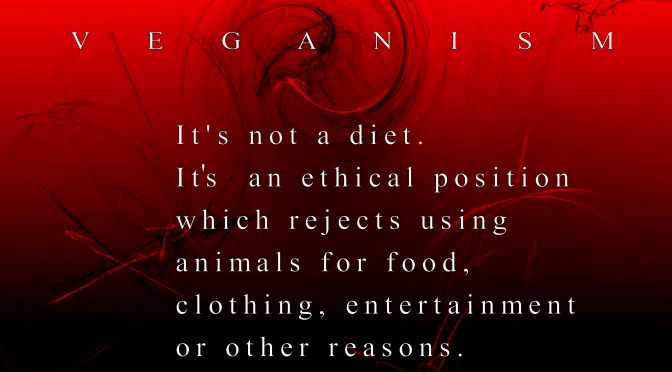Podcast: Play in new window | Download
In episode 27, It’s a mixed bag 🙂 I talk about a number of topics. How the holiday season can be difficult for vegans but it doesn’t have to be. I share tips about how to survive it and how to help spread veganism at this time. I discuss the massive bee die-off globally and how if we are not vegan, we are participating in this. I speak about other causes of this massive bee die off including GMOs, pesticides, and honey production and our part in this. I discuss climate change again in relation to animal agriculture and how independent news and individuals from large green organisations virtually ignore animal agriculture’s tremendous contribution and a number of other miscellaneous issues. I talk about generosity.

Here’s the full essay by Chris Hedges “Apocalyptic Capitalism“.
Here’s an excerpt:
The animal agriculture industry has, in a staggering act of near total censorship, managed to stifle public discussion about the industry’s complicity in global warming. It is barely mentioned in climate summits. Yet livestock and their byproducts, as Kip Andersen and Keegan Kuhn point out in their book, “The Sustainability Secret,” and their documentary, “Cowspiracy,” account for at least 32,000 million tons of carbon dioxide (CO2) per year, or 51 percent of all worldwide greenhouse gas emissions. Methane and nitrous oxide are rarely mentioned in climate talks, although those two greenhouse gases are, as the authors point out, respectively, 86 times and 296 times more destructive than carbon dioxide. Cattle, worldwide, they write, produce 150 billion gallons of methane daily. And 65 percent of the nitrous oxide produced by human-related activities is caused by the animal agriculture industry. Water used in fracking, they write, ranges from 70 billion to 140 billion gallons annually. Animal agriculture water consumption, the book notes, ranges from 34 trillion to 76 trillion gallons annually. Raising animals for human consumption takes up to 45 percent of the planet’s land. Ninety-one percent of the deforestation of the Amazon rain forest and up to 80 percent of global rain forest loss are caused by clearing land for the grazing of livestock and growing feed crops for meat and dairy animals. As more and more rain forest disappears, the planet loses one of its primary means to safely sequester carbon dioxide. The animal agriculture industry is, as Andersen and Kuhn write, also a principal cause of species extinction and the creation of more than 95,000 square miles of nitrogen-flooded dead zones in the oceans.
A person who eats a vegan diet, they point out, a diet free of meat, dairy and eggs, saves 1,100 gallons of water, 45 pounds of grain, 30 square feet of forested land, 20 pounds CO2 equivalent, and one animal’s life every day.
The animal agriculture industry has pushed through “Ag-Gag” laws in many states that criminalize protests, critiques of the industry, and whistleblowing attempts to bring the public’s attention to the staggering destruction wrought on the environment by the business of raising 70 billion land animals every year worldwide to be exploited and consumed by humans. And they have done so, I presume, because defying the animal agriculture industry is as easy as deciding not to put animal products—which have tremendous, scientifically proven health risks—into your mouth.
We have little time left. Those who are despoiling the earth do so for personal gain, believing they can use their privilege to escape the fate that will befall the human species. We may not be able to stop the assault. But we can refuse to abet it. The idols of power and greed, as the biblical prophets warned us, threaten to doom the human race.
Bob Linden on GoVeganRadio.com (Listen here) speaks about Syria and how climate change has played a major part in the unrest there. So if we are not vegan, we are in part participating in the dire situation for Syrians.
Here is the Facebook page “My Face is on Fire” I mention.
Here’s a link to the book I mentioned “Animal Rights: The Abolitionist Approach“.
Please read my full disclaimer about external links, organisations, groups, social media pages, individuals etc.
Here’s the excerpt from 3 reasons not to eat honey:
While you may spread a heaping tablespoon of honey on your morning toast without thinking, creating each drop is no small feat. To make one pound of honey, a colony must visit over two million flowers, flying over 55,000 miles, at up to 15 miles per hour to do so. During a bee’s lifetime, she will only make approximately one teaspoon of honey, which is essential to the hive for times when nectar is scarce, such as during winter. At times there may be an excess in the hive, but this amount is difficult to determine and large-scale beekeepers often remove all or most of it and replace it with a sugar or corn syrup substitute. Can you imagine someone removing all the fruit juice from your house and replacing it with fruit-flavored soda? It may still give you energy, but eventually it will probably make you sick.
Another thing to think about while you sit by your beeswax candle and contemplate the lives of these little fellows is that bees must consume approximately eight pounds of honey to produce each pound of wax! And the more we take from them (bee pollen, royal jelly, propolis) the harder these creatures must work and the more bees are needed, which isn’t good news for a population that is dwindling.
When you see a jar of honey, you may think of the sweet cartoon hives depicted in childhood stories such as Winnie the Pooh. But most hives are now confined to large boxes (a completely foreign shape to bees) that are jostled and shipped around the country to pollinate crops and produce honey. This is stressful and confusing to the bees’ natural navigation systems. Along the way, bees are lost and killed, and may spread diseases from one infected hive to another. The practice of bee farming often limits the bees’ diet to monoculture crops (*hint hint* blueberry, clover, lavender honey), introduces large amounts of pesticides into their systems and causes the farmed bees to crowd out the native wild pollinators that may have been otherwise present. Beekeepers (even small-scale backyard beekeepers) will also kill the queens if they feel the hive is in danger of swarming (fleeing their file cabinet shaped homes) or drones* that they deem unnecessary to honey production.
Thanks for listening. 🙂 Please tune in again and please subscribe to my podcast. And if you’re not vegan, it’s much easier than you think. Please start here.



